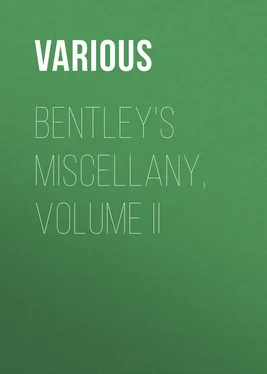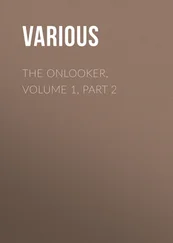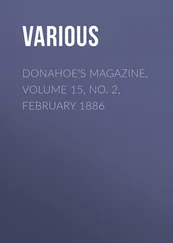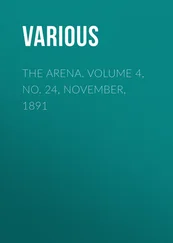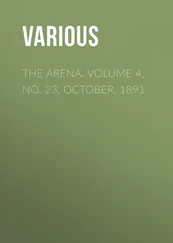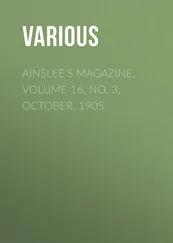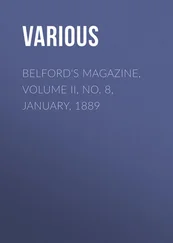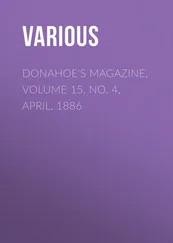Various - Bentley's Miscellany, Volume II
Здесь есть возможность читать онлайн «Various - Bentley's Miscellany, Volume II» — ознакомительный отрывок электронной книги совершенно бесплатно, а после прочтения отрывка купить полную версию. В некоторых случаях можно слушать аудио, скачать через торрент в формате fb2 и присутствует краткое содержание. Издательство: Иностранный паблик, Жанр: foreign_antique, foreign_prose, на английском языке. Описание произведения, (предисловие) а так же отзывы посетителей доступны на портале библиотеки ЛибКат.
- Название:Bentley's Miscellany, Volume II
- Автор:
- Издательство:Иностранный паблик
- Жанр:
- Год:неизвестен
- ISBN:нет данных
- Рейтинг книги:3 / 5. Голосов: 1
-
Избранное:Добавить в избранное
- Отзывы:
-
Ваша оценка:
- 60
- 1
- 2
- 3
- 4
- 5
Bentley's Miscellany, Volume II: краткое содержание, описание и аннотация
Предлагаем к чтению аннотацию, описание, краткое содержание или предисловие (зависит от того, что написал сам автор книги «Bentley's Miscellany, Volume II»). Если вы не нашли необходимую информацию о книге — напишите в комментариях, мы постараемся отыскать её.
Bentley's Miscellany, Volume II — читать онлайн ознакомительный отрывок
Ниже представлен текст книги, разбитый по страницам. Система сохранения места последней прочитанной страницы, позволяет с удобством читать онлайн бесплатно книгу «Bentley's Miscellany, Volume II», без необходимости каждый раз заново искать на чём Вы остановились. Поставьте закладку, и сможете в любой момент перейти на страницу, на которой закончили чтение.
Интервал:
Закладка:
During this conversation we were in rapid motion, driving through streets lighted up as magnificently as if the Shah himself had ordered a feast of fire-works, and ornamented by shops exhibiting such riches, that not all the wealth brought from Hind by Nadir Shah, or amassed by the Sofi, could compare to it.
"Strange," thought I to myself, "that this people are not satisfied with their lot!" Passing by a splendid shop, resplendent with cutlery, part of my instructions came into my head, and I said to the rough man, "In the name of the Prophet, do you still make penknives and broad-cloth?"
At this question my companion stared, and said, "Penknives and broad-cloth, did you say? Why, we have more penknives and broad-cloth than we know what to do with. We have made so much and so many, that the whole world has more of them than it wants; and the poor creatures, the manufacturers, are starving for want of work. Surely this wants reform."
This was delightful news for me, and I longed to send an immediate courier to the Shah to inform him of the important fact.
"Whose fault is it?" said the soft man, determined not to be beaten on any ground. "If manufacturers will do too much, whose fault is it but their own? Unless you make a reform in common sense, surely no other reform is needful."
By this time the coach had stopped, and I found that we had reached our last menzil. The rough man got out first; but just as he was stepping down, in order to ensure the last word, he exclaimed, "We want reform not only in that, but in everything else, – more particularly in rotten boroughs."
At these two last words, the soft man became evidently angered, his liver turning into blood, whilst his face became red. "Rotten boroughs, indeed! the country is lost for ever if one borough is disfranchised."
These words were totally new to my ears, and what they meant I knew not; but I became quite certain that the rough man had hit the smooth man in a sore place. But I was in the seventh heaven at the end of their controversy. I had never heard such warmth of argument, not since that famous dispute at the Medressah, in Ispahan, between two famous Mollahs, the one a suni, the other a shiah, whether the children of the true faith, in washing according to the prescribed law, were to let the water run from the hand to the elbow, or whether from the elbow to the hand. They argued for three whole moons, and neither were convinced; and so they remain to this day, each in his own persuasion.
"How will it be possible," thought I, "to unravel this intricate question? It is plain these English are a nation of madmen. Oh! could they but take one look at my country, where the will of one man is all in all, – where no man's head is safe on his shoulders for one moment, – where, if he heaps up riches in the course of many years, they may be taken from him in an hour, – where he does not even think for himself, much less speak, – where man is as withering grass of the field, and life as the wind blowing over it; could they but know this, short would be their controversies. They would praise Allah with gratitude for their condition, be content with their fate, and drive all wish of change from their thoughts, as threatening the overthrow of their happiness."
SHAKSPEARE PAPERS. – No. III
"Of this unlucky sort our Romeus is one,
For all his hap turns to mishap, and all his mirth to mone."
"Never," says Prince Escalus, in the concluding distich of Romeo and Juliet,
" – was there story of more woe
Than this of Juliet and her Romeo."
It is a story which, in the inartificial shape of a black-letter ballad, powerfully affected the imagination, and awakened the sensibilities, of our ancestors, and in the hands of Shakspeare has become the love-story of the whole world. Who cares for the loves of Petrarch and Laura, or of Eloisa and Abelard, compared with those of Romeo and Juliet? The gallantries of Petrarch are conveyed in models of polished and ornate verse; but, in spite of their elegance, we feel that they are frosty as the Alps beneath which they were written. They are only the exercises of genius, not the ebullitions of feeling; and we can easily credit the story that Petrarch refused a dispensation to marry Laura, lest marriage might spoil his poetry. The muse, and not the lady, was his mistress. In the case of Abelard there are many associations which are not agreeable; and, after all, we can hardly help looking upon him as a fitter hero for Bayle's Dictionary than a romance. In Romeo and Juliet we have the poetry of Petrarch without its iciness, and the passion of Eloisa free from its coarse exhibition. We have, too, philosophy far more profound than ever was scattered over the syllogistic pages of Abelard, full of knowledge and acuteness as they undoubtedly are.
But I am not about to consider Romeo merely as a lover, or to use him as an illustration of Lysander's often-quoted line,
In that course the current has been as rough to others as to Romeo; who, in spite of all his misfortunes, has wooed and won the lady of his affections. That Lysander's line is often true, cannot be questioned; though it is no more than the exaggeration of an annoyed suitor to say that love has never run smoothly. The reason why it should be so generally true, is given in "Peveril of the Peak" by Sir Walter Scott; a man who closely approached to the genius of Shakspeare in depicting character, and who, above all writers of imagination, most nearly resembled him in the possession of keen, shrewd, every-day common-sense, rendered more remarkable by the contrast of the romantic, pathetic, and picturesque by which it is in all directions surrounded.
"This celebrated passage which we have prefixed to this chapter, [chap. xii. vol. i. Peveril of the Peak,] has, like most observations of the same author, its foundation in real experience. The period at which love is felt most strongly is seldom that at which there is much prospect of its being brought to a happy issue. In fine, there are few men who do not look back in secret to some period of their youth at which a sincere and early affection was repulsed or betrayed, or became abortive under opposing circumstances. It is these little passages of secret history, which leave a tinge of romance in every bosom, scarce permitting us, even in the most busy or the most advanced period of life, to listen with total indifference to a tale of true love." 5 5 Was Sir Walter thinking of his own case when he wrote this passage? See his Life by Lockhart, vol. i. p. 242. His family used to call Sir Walter Old Peveril , from some fancied resemblance of the character.
These remarks, the justice of which cannot be questioned, scarcely apply to the case of Romeo. In no respect, save that the families were at variance, was the match between him and Juliet such as not to afford a prospect of happy issue; and everything indicated the possibility of making their marriage a ground of reconciliation between their respective houses. Both are tired of the quarrel. Lady Capulet and Lady Montague are introduced in the very first scene of the play, endeavouring to pacify their husbands; and, when the brawl is over, Paris laments to Juliet's father that it is a pity persons of such honourable reckoning should have lived so long at variance. For Romeo himself old Capulet expresses the highest respect, as being one of the ornaments of the city; and, after the death of Juliet, old Montague, touched by her truth and constancy, proposes to raise to her a statue of gold. With such sentiments and predispositions, the early passion of the Veronese lovers does not come within the canon of Sir Walter Scott; and, as I have said, I do not think that Romeo is designed merely as an exhibition of a man unfortunate in love.
Читать дальшеИнтервал:
Закладка:
Похожие книги на «Bentley's Miscellany, Volume II»
Представляем Вашему вниманию похожие книги на «Bentley's Miscellany, Volume II» списком для выбора. Мы отобрали схожую по названию и смыслу литературу в надежде предоставить читателям больше вариантов отыскать новые, интересные, ещё непрочитанные произведения.
Обсуждение, отзывы о книге «Bentley's Miscellany, Volume II» и просто собственные мнения читателей. Оставьте ваши комментарии, напишите, что Вы думаете о произведении, его смысле или главных героях. Укажите что конкретно понравилось, а что нет, и почему Вы так считаете.
